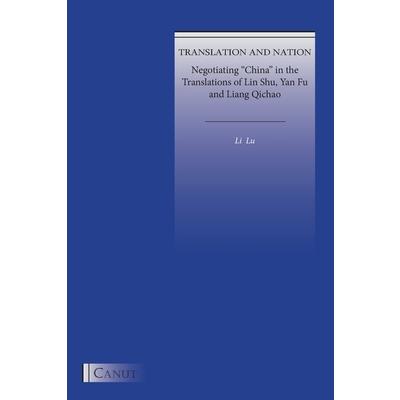Translation and Nation
活動訊息
內容簡介
This book is aimed at examining each translation method and strategy used by Lin Shu, Yan Fu, and Liang Qichao and, more importantly, exploring the contribution of their translations to the formation of a consciousness of Chineseness. I hope to show that rather than serving as a tool to literary history, translation during the late nineteenth and early twentieth century served as one of the most important tools for introducing new ideas and producing cultural changes. In chapter one, the author gives an historical account of the formation of Chineseness in the late Qing period and its current problematic status. Next, briefly introduces Chinese translation history, which still remains largely obscure to Western readers. Finally, the author provides readers with biographical information about the three Chinese translators and with a basic acquaintance of their translations. Chapter two starts with a review of the criticism of Lin Shu's translations. After a comparison of different translational motives behind Lin's first two translation projects, the author maps out a constellation of emotional, cultural, and commercial motives, suggesting that Lin Shu started his translation career in a turbulent era when new cultural paradigms and national consciousness were looming in the distance. Chapter three devotes many pages to Yan Fu's three translation criteria: xin 信 (accuracy), da 达 (intelligibility), and ya 雅 (elegance). The author argues that Yan Fu imbues these three ancient concepts with new meanings and tries to establish a new standard genre that is suitable to modern science. Though Yan Fu follows the original closer than does Lin Shu, he intervenes and manipulates the source text to the extent that his translation cannot be called literary translation. A study of Liang Qichao's theory of fiction constitutes the main part of chapter four. Liang Qichao promotes a completely politically charged literary genre to sharpen Chinese consciousness. The author also offers a comparison of traditional Chinese ideas of fiction and Liang's new fiction doctrine. Finally, the book examines Japanese influence on Liang's literary and political ideas. In the conclusion chapter, the author suggests that the three Chinese translators not only tested the plasticity of the Chinese language in accommodating foreign languages, but also destabilized the boundary within the Chinese language. By using an unfamiliar language to translate an unknown language, the three Chinese translators longed for a new Chinese language that would become the mother tongue of the Chinese people as opposed to other races and ethnicities.
配送方式
-
台灣
- 國內宅配:本島、離島
-
到店取貨:
不限金額免運費



-
海外
- 國際快遞:全球
-
港澳店取:


訂購/退換貨須知
加入金石堂 LINE 官方帳號『完成綁定』,隨時掌握出貨動態:
商品運送說明:
- 本公司所提供的產品配送區域範圍目前僅限台灣本島。注意!收件地址請勿為郵政信箱。
- 商品將由廠商透過貨運或是郵局寄送。消費者訂購之商品若無法送達,經電話或 E-mail無法聯繫逾三天者,本公司將取消該筆訂單,並且全額退款。
- 當廠商出貨後,您會收到E-mail出貨通知,您也可透過【訂單查詢】確認出貨情況。
- 產品顏色可能會因網頁呈現與拍攝關係產生色差,圖片僅供參考,商品依實際供貨樣式為準。
- 如果是大型商品(如:傢俱、床墊、家電、運動器材等)及需安裝商品,請依商品頁面說明為主。訂單完成收款確認後,出貨廠商將會和您聯繫確認相關配送等細節。
- 偏遠地區、樓層費及其它加價費用,皆由廠商於約定配送時一併告知,廠商將保留出貨與否的權利。
提醒您!!
金石堂及銀行均不會請您操作ATM! 如接獲電話要求您前往ATM提款機,請不要聽從指示,以免受騙上當!
退換貨須知:
**提醒您,鑑賞期不等於試用期,退回商品須為全新狀態**
-
依據「消費者保護法」第19條及行政院消費者保護處公告之「通訊交易解除權合理例外情事適用準則」,以下商品購買後,除商品本身有瑕疵外,將不提供7天的猶豫期:
- 易於腐敗、保存期限較短或解約時即將逾期。(如:生鮮食品)
- 依消費者要求所為之客製化給付。(客製化商品)
- 報紙、期刊或雜誌。(含MOOK、外文雜誌)
- 經消費者拆封之影音商品或電腦軟體。
- 非以有形媒介提供之數位內容或一經提供即為完成之線上服務,經消費者事先同意始提供。(如:電子書、電子雜誌、下載版軟體、虛擬商品…等)
- 已拆封之個人衛生用品。(如:內衣褲、刮鬍刀、除毛刀…等)
- 若非上列種類商品,均享有到貨7天的猶豫期(含例假日)。
- 辦理退換貨時,商品(組合商品恕無法接受單獨退貨)必須是您收到商品時的原始狀態(包含商品本體、配件、贈品、保證書、所有附隨資料文件及原廠內外包裝…等),請勿直接使用原廠包裝寄送,或於原廠包裝上黏貼紙張或書寫文字。
- 退回商品若無法回復原狀,將請您負擔回復原狀所需費用,嚴重時將影響您的退貨權益。










商品評價